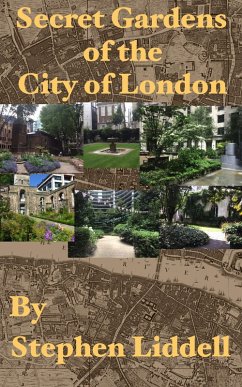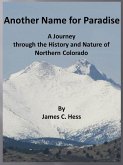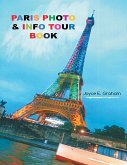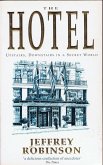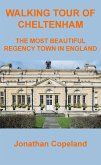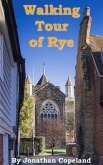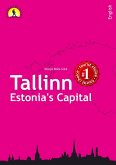Greater London itself has just been declared the world's first National Park City with 50% of it being in some way green or indeed blue; gardens, footpaths and bridleways of course, canals, rivers, woods and parks. Many of them are known well beyond our shores, Hyde Park, Richmond Park, Wimbledon Common, Hampstead Heath to name but a few. Like many of the most famous districts, streets and buildings, they are not really in London but in places such as Westminster or Chelsea.
The real London, the City of London, is something of a mystery to many, even those who work here every day, decade after decade. It has none of the wide streets of the West End or the mile upon mile of well-to-do housing of Notting Hill or Kensington. And maybe that is why it remains a mystery. Between St Paul's Cathedral and the Tower of London is largely a hidden world all shaped by geography, Romans, Vikings, Saxons and the dynasties that came after the Norman invasions, the Great and not so great fires, the plagues and other natural disasters and all those wars.
I still remember the day when the first steps towards writing this book took place. It was a freezing cold, muddy December day in 2017. I was out exploring so many of the multitude of lanes and courts that Dr Johnson himself would have been proud of me. There came a point towards the end of the day when I realised my shoes were muddy. Not dirty from the odd puddle or the natural winter grime of a big city but caked in mud. I realised that in all my life I had been to London to work, to study, to live, to shop, to eat, to enjoy culture, to date even but never before had my shoes got so muddy that I might as well have trudged miles through the Lake District.
It piqued my curiosity, all those little green spaces I vaguely knew of and no doubt countless more I was blissfully unaware of. Every one of these gardens or squares had a reason for being. They were all different and largely overlooked even by workers passing the nearest busy road, often just feet away.
I didn't think anyone else would be interested in my hare-brained line of thought. Of all the things to see in London, who would want to literally get away from it all? As it turned out tourists, like myself, were in awe that we could be standing in the middle of perhaps the most powerful and epic city of all time and yet be totally alone save for flowers, bushes, trees, butterflies, birds, mammals and more. Weekdays would see us barely meet anyone; weekends would see us meeting fewer still. I remember Boxing Day in 2018 and the 2nd of January 2020, when we didn't see a single person in the entire City of London.
I've tried to make this as exhaustive as possible. I've walked down every road, lane and alley I could find and have been doing so for years. I've played hunches, and looked at old books and maps and the latest satellite imagery too. London is always changing, that's one of its great and sometimes annoying qualities. Several parks each year are renovated, new buildings spring up and even in the last year or two new developments have brought us gleaming new parks and open spaces in the City of London. This book doesn't claim to be in any way a garden encyclopaedia, it is just a guide to hopefully encourage more people to get the train or tube into the City of London and go off and explore this great old city that is so well visited and yet unexplored.
Go out and find your own favourite garden, bench, tree or statue. I would say how badly could you get lost in a square mile? The answer is not only 'very' but also 'totally and utterly'.
Dieser Download kann aus rechtlichen Gründen nur mit Rechnungsadresse in A, B, CY, CZ, D, DK, EW, E, FIN, F, GR, H, IRL, I, LT, L, LR, M, NL, PL, P, R, S, SLO, SK ausgeliefert werden.

